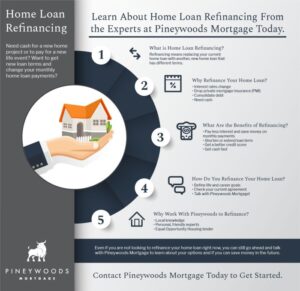
Passive income through real estate invites you into a world where your investments work for you, allowing for financial freedom and a more relaxed lifestyle. Imagine earning money while you sleep, all thanks to strategic investments in properties that can generate consistent cash flow.
This approach not only involves understanding the basics of passive income but also delves into various methods for generating profits, from single-family homes to multi-family units. By grasping the key factors that influence profitability and knowing how to evaluate them, you’ll be equipped to embark on a rewarding investment journey.
Understanding Passive Income through Real Estate

Passive income is a financial concept that allows individuals to earn money with minimal effort on a regular basis after the initial investment. In the realm of real estate, this often translates to generating revenue through rental properties, where investors can leverage their investments to create a steady cash flow. This approach not only builds wealth over time but also provides financial security and freedom, making it an appealing option for many.Real estate investments can take various forms, with rental properties being one of the most common methods to generate passive income.
Investors can choose between single-family homes and multi-family units, each offering unique advantages and challenges. Single-family homes typically attract long-term tenants and require less management, while multi-family units can yield higher returns through multiple rental incomes, albeit with potentially more complex management responsibilities. Understanding these differences is crucial for investors looking to maximize their earnings while minimizing risks.
Methods to Generate Passive Income through Rental Properties
There are several effective methods to generate passive income through rental properties, each tailored to different investment strategies and risk profiles. Below are key methods that investors often consider:
- Single-Family Rentals: Investing in single-family homes can be an excellent entry point for new investors. These properties usually have lower purchase prices and can attract stable, long-term tenants, thus providing consistent rental income.
- Multi-Family Units: Properties such as duplexes, triplexes, or larger apartment buildings can generate more income due to multiple rental streams. While they may require more maintenance and management, the increased cash flow can significantly outweigh these challenges.
- Vacation Rentals: Platforms like Airbnb have made it easier for property owners to rent out homes or apartments on a short-term basis. This method can yield higher rental income during peak seasons but may also necessitate more active management and marketing efforts.
- Real Estate Investment Trusts (REITs): Investing in REITs allows individuals to earn passive income without directly managing properties. These trusts invest in a portfolio of real estate and distribute dividends to shareholders, providing a more hands-off approach to real estate investment.
- Commercial Real Estate: Properties like office buildings or retail spaces can offer substantial monthly rent, although they often require a larger upfront investment and come with different risk factors compared to residential properties.
Key Factors Influencing Profitability of Real Estate Investments
Investing in real estate is not without its complexities. Several key factors influence the overall profitability of these investments, and understanding these can help investors make informed decisions.
- Location: The location of a property plays a vital role in its rental demand and potential appreciation. Areas with good schools, job opportunities, and amenities typically see higher rental prices and lower vacancy rates.
- Property Condition: The physical condition of a property can impact both rental income and maintenance costs. Investors should conduct thorough inspections and consider renovations or upgrades that might increase value and attract quality tenants.
- Market Trends: Staying updated on local real estate market trends, such as rental rates, housing supply, and economic factors, can provide insights into the best times to buy or sell properties.
- Cash Flow Analysis: Evaluating a property’s expected cash flow involves assessing income from rents minus expenses such as mortgage payments, property management fees, and maintenance costs. Positive cash flow is essential for a sustainable investment.
- Financing Options: The terms of financing can affect overall returns. Investors should explore various mortgage options and understand interest rates, as they directly impact monthly payments and overall profitability.
“Successful real estate investing is not just about buying properties; it’s about understanding the market and making informed decisions that lead to sustainable passive income.”
Types of Real Estate Investments for Passive Income

Real estate offers a variety of investment options that can generate passive income. Each type comes with its unique characteristics, benefits, and risks. Understanding these differences is essential for investors looking to build a reliable income stream through real estate.Investors can choose from several types of real estate investments, including commercial properties, condominiums, single-family rentals, and foreclosures. Each option has its own potential for return on investment, and understanding the nuances of these types can aid in making informed decisions.
Commercial Properties
Commercial properties encompass a range of real estate types, such as office buildings, retail spaces, and industrial complexes. These investments can provide significant returns but also come with higher risks.
- Benefits: Commercial properties often have longer lease terms than residential properties, which can mean more stable income. Additionally, the potential for higher rental rates exists due to the nature of business tenants.
- Risks: The commercial real estate market can be more volatile than residential, especially in economic downturns. Moreover, properties may require more significant capital investment and ongoing management.
Investment in commercial properties is often driven by market demand and location. It’s crucial to analyze local economic conditions, types of businesses in the area, and future growth projections.
Condominiums
Condos represent an attractive option for investors seeking passive income, particularly in urban settings. They can be easier to manage compared to single-family homes, especially if part of a homeowners association (HOA) manages the property.
- Benefits: Condominiums typically require lower upfront costs and maintenance responsibilities can be shared with an HOA, which can simplify management duties.
- Risks: Market saturation in urban areas can lead to fluctuating property values. Additionally, HOA fees can affect profitability, and restrictions may limit rental opportunities.
Investing in condos should involve careful evaluation of the HOA rules, fee structures, and the overall health of the local real estate market.
Foreclosures
Foreclosures can offer significant bargains for investors willing to navigate the complexities involved. These properties are sold at reduced prices, potentially allowing for substantial returns after refurbishment.
- Benefits: The lower purchase price provides an opportunity for quick equity gain, especially if the property is renovated successfully.
- Risks: Foreclosed properties often require extensive repairs and may come with hidden costs. Additionally, the purchasing process can be lengthy and competitive.
Investors should conduct thorough inspections and due diligence before purchasing foreclosures, as hidden issues can lead to unexpected expenses.
Strategies for Selecting Real Estate Investments
Choosing the right type of real estate investment hinges on aligning personal financial goals with prevailing market trends. Investors should consider factors such as:
- Personal risk tolerance: Understanding how much risk you are willing to take is crucial. High-return investments often come with higher risks.
- Market research: Keeping abreast of local market conditions, such as vacancy rates and economic indicators, helps identify promising investment opportunities.
- Investment time horizon: Determine how long you are willing to hold onto a property. Short-term investments may differ significantly from long-term strategies.
- Cash flow needs: Assess whether immediate cash flow is essential or if a longer-term appreciation strategy suits your financial goals better.
By considering these strategies, investors can make informed decisions that align with their financial aspirations and the dynamics of the real estate market.
Strategies for Successful Real Estate Investing
Investing in real estate can be a rewarding way to build passive income, but success in this field requires careful planning and a strategic approach. Understanding the frameworks and methods that can lead to successful real estate investments is crucial for new investors aiming to make their mark in the market. By establishing a solid foundation, potential investors can navigate the complexities of real estate while maximizing their returns.
Step-by-Step Plan for New Investors
Entering the real estate market can feel overwhelming for newcomers, but a structured approach can simplify this process. Here’s a step-by-step plan that can guide new investors toward creating a steady passive income stream:
1. Education and Research
Begin by learning the basics of real estate investment. Read books, attend workshops, and follow market trends. Understanding market dynamics will help in making informed decisions.
2. Define Investment Goals
Clearly Artikel what you hope to achieve. Whether it’s short-term gains or long-term income, having specific goals will shape your investment strategy.
3. Choose Your Investment Type
Decide on the type of real estate investment that aligns with your goals, such as rental properties, REITs (Real Estate Investment Trusts), or flipping houses.
4. Financial Assessment
Analyze your financial situation to determine how much you can afford to invest. Consider all costs involved, including purchase price, renovation expenses, and operating costs.
5. Create a Business Plan
Draft a comprehensive business plan that Artikels your investment strategy, expected cash flow, and exit strategies. This plan will serve as your roadmap.
6. Networking
Build relationships with other real estate investors, attend local real estate meetups, and engage with online communities. Networking can provide valuable insights and opportunities.
7. Find a Good Real Estate Agent
Collaborating with a knowledgeable real estate agent can provide access to exclusive listings and market insights that are crucial for making informed purchasing decisions.
8. Conduct Thorough Due Diligence
Before purchasing any property, conduct extensive research on the location, property condition, and potential return on investment (ROI). This step is vital for mitigating risks.
9. Secure Financing
Explore financing options that suit your investment strategy. Options may include traditional mortgages, private loans, or using cash reserves.1
-
0. Make the Purchase
Once you find the right property and have secured financing, proceed with the purchase. Ensure that all contracts are reviewed by a legal professional.
- 1
1. Property Management
Decide whether to manage properties yourself or hire a property management company. Effective management is key to maintaining cash flow and tenant satisfaction.
Importance of Working with Real Estate Agents
Real estate agents play a critical role in the investment process by bridging the gap between buyers and sellers. Their expertise can significantly enhance an investor’s success in the market. Here are key points illustrating their importance:
Market Knowledge
Real estate agents possess in-depth knowledge of local markets, which can help identify profitable investment opportunities that may otherwise go unnoticed.
Access to Listings
Agents have access to the Multiple Listing Service (MLS), providing a comprehensive view of available properties, including those not listed online.
Negotiation Skills
Experienced agents bring strong negotiation skills to the table, helping investors secure properties at favorable prices.
Legal Guidance
Real estate transactions involve complex legalities. Agents can guide investors through contracts, disclosures, and compliance issues, reducing the risk of legal complications.
Networking
Agents often have extensive networks of industry contacts, including lenders, inspectors, and contractors, facilitating smoother transactions.Involving a skilled real estate agent in your investment journey can streamline the process and enhance your chances of success.
Organization Method for Tracking Real Estate Investments
Effectively managing real estate investments is crucial for ensuring consistent cash flow and maximizing returns. A well-structured organization method can help investors track their portfolio efficiently. Here’s a practical approach:
Create a Digital Spreadsheet
Use spreadsheet software like Microsoft Excel or Google Sheets to create a comprehensive tracking system. This should include columns for property details, purchase price, current value, rental income, and expenses.
Income Tracking
Maintain a separate section for tracking monthly rental income, including dates of payments and any arrears. This will help gauge cash flow and identify trends.
Expense Management
Document all property-related expenses, such as maintenance, property taxes, insurance, and management fees. Regularly updating this data helps in understanding the profitability of each investment.
Performance Analysis
Conduct periodic reviews of each property’s performance. Calculate ROI and determine whether adjustments are needed in management strategies.
Use Financial Software
Consider using real estate investment software or applications that offer features specifically designed for tracking income, expenses, and overall portfolio performance.
Document Maintenance Records
Keep a detailed log of all maintenance and repairs conducted on each property. This can aid in future planning and budgeting.
Review and Adjust
Schedule regular intervals (e.g., quarterly) to review your investment strategy and make adjustments based on performance data and market conditions.By implementing these organizational methods, investors can maintain a clear overview of their investments, ensuring they remain profitable and aligned with their financial goals.
Conclusion
In summary, passive income through real estate is more than just a dream; it’s an achievable goal for anyone willing to learn and invest wisely. By exploring different types of properties and employing effective strategies, you can build a portfolio that not only meets your financial goals but also provides lasting benefits for years to come.
Helpful Answers
What is passive income?
Passive income refers to earnings derived from investments or business ventures in which an individual is not actively involved, allowing for a steady stream of revenue with minimal ongoing effort.
How much money do I need to start investing in real estate?
The amount needed varies greatly depending on the property type and location; however, starting with as little as 20% of the property value for a down payment is common.
Is real estate investing risky?
Like any investment, real estate carries risks, including market fluctuations and property maintenance costs, but these can be mitigated with thorough research and strategy.
What types of properties are best for passive income?
Single-family homes, multi-family units, and commercial properties can all serve as good sources of passive income, depending on your investment goals and market conditions.
Can I manage rental properties myself?
Yes, many investors manage their own properties, but hiring a property manager can help alleviate the workload and ensure professional handling of tenant relations and maintenance.





